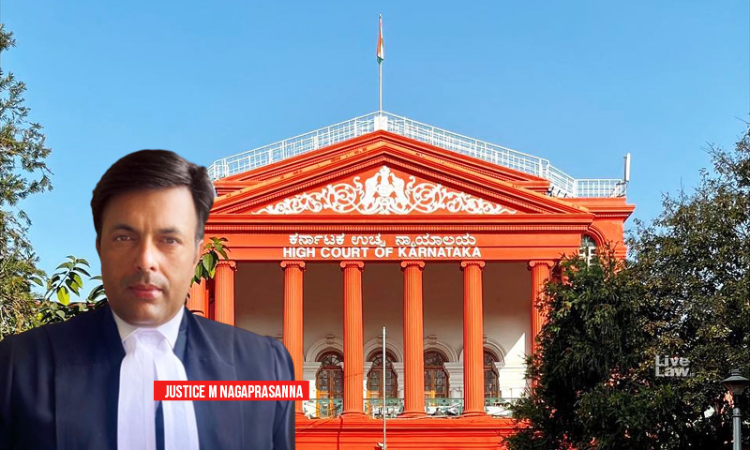- Home
- /
- High Courts
- /
- Karnataka High Court
- /
- Ethical Conduct Must Be Maintained...
Ethical Conduct Must Be Maintained In Privileged Discussion Of Legislature, Criminal Acts In The House Are Not Immune From Prosecution: Karnataka HC
Mustafa Plumber
3 May 2025 10:00 AM IST
The Karnataka High Court has held that criminal acts inside the Legislative House are not immune from prosecution and there is no absolute immunity that Legislators can claim.A single judge, Justice M Nagaprasanna held thus while refusing to quash a case for outraging the modesty of a woman, registered against BJP Legislator CT Ravi booked for allegedly using derogatory words against...
The Karnataka High Court has held that criminal acts inside the Legislative House are not immune from prosecution and there is no absolute immunity that Legislators can claim.
A single judge, Justice M Nagaprasanna held thus while refusing to quash a case for outraging the modesty of a woman, registered against BJP Legislator CT Ravi booked for allegedly using derogatory words against Congress Legislator Laxmi Hebbalkar inside the State Council at Belagavi.
It said “Spoken word in the Legislature by the Legislators would ordinarily come within the immunity under Article 194(2) of the Constitution of India, but not in certain exceptional circumstances. Judicial review is permissible even in cases where the parliamentary privilege is projected, but not in all circumstances, only on a case to case basis.”
Ravi was arrested on December 19, 2024 under Section 75 and 79 of the BNS, after he moved the High Court questioning his arrest he was directed to be forthwith released on bail. Following which he has moved the court seeking to quash the offence.
On going through the complaint and the averments in the petition the bench noted that “Respect and reputation of a woman in any civilized society, shows basic civility of any such civilized society. No citizen, in a civilized society, can afford to conceive the idea that he can create a hollow in the honour of a woman. Such thinking is not only lamentable, but deplorable.”
It said that “What forms the fulcrum of the conundrum is certain words spoken on the floor of the house, not by an ordinary citizen, but a responsible representative of the people.”
Then it said “The alleged words that the petitioner has uttered is calling the complainant a “prostitute”. This undoubtedly forms the ingredient of both Sections 75 and 79 of the BNS. Whether such word spoken is immune from any action. The unequivocal and emphatic answer is, a “NO”.
It then held “The alleged word spoken, if spoken, or gesture made, if made, against a woman, certainly outrages her modesty and it above all, can have no nexus to the functioning of the House or no relation to a transaction of the business of the House.”
Stating that the alleged offence needs to be investigated, the court said “There is an allegation and the complaint, registered with alacrity, is vivid that words have been spoken. Therefore, these acts which eroded the dignity of a woman or outraged her modesty cannot be protected under the parasol of legislator's privilege of anything done inside the House.”
Following which the court opined “In the grand tapestry or the labyrinth of democracy, the privilege of legislative speech is a vital thread. Therefore, it must be woven with the fibers of responsibility and ethical conduct. The legislature is an exalted forum for deliberation, not a forum for personal vilification. While this Court will always remain the sentinel of legislative autonomy, it cannot permit invocation of privilege to stymie the imperatives of justice.”
Dismissing the petition the court said “The legislature is not a sanctuary for defamation or gendered invective, rather an institution where robust debate must be tempered with decorum and respect. I find neither in the alleged acts of the petitioner.”
Case title: SRI C T RAVI v/s STATE BY BAGEWADI P S AND OTHERS
Case No: CRL.P 791/2025
Citation No: 2025 LiveLaw (Kar) 163



